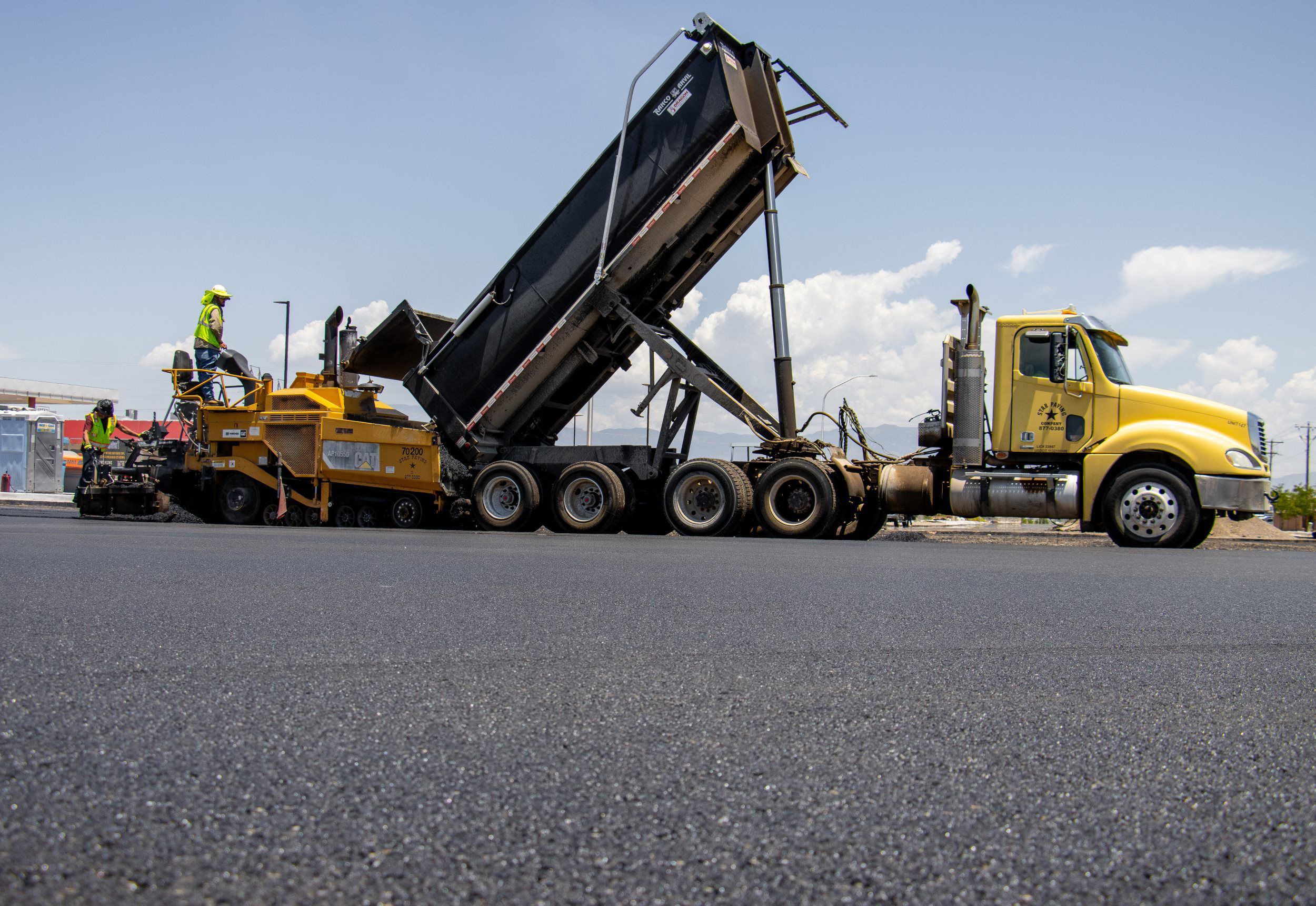
Harsh weather does a number on driveways, roads, and parking lots — but we need to build them anyway.When you choose to install asphalt in a cold climate, understand how weather affects asphalt so you can make wise, informed choices and also feel good about them.
1. It's a Good Choice for Cold Climates
Especially compared to concrete, asphalt is a great choice for colder climates. Concrete is more easily damaged by quick expansion and contraction, and it is prone to frost heaves. While asphalt is not immune to the effects of cold temperatures, concrete deteriorates much more quickly.In cold climates, antifreeze and salt must be spread across roads, driveways, and other surfaces to help snow and ice melt quickly. Concrete deteriorates under such substances, but asphalt is less sensitive, especially if it is treated to withstand weather damage.Finally, asphalt is good at absorbing heat from the sun. It is naturally able to melt snow and ice quickly.
2. Certain Kinds Are Better for Wet Climates
Asphalt is less prone to expanding and contracting than concrete is, but it will still contract at low temperatures. This can cause the asphalt to crack.That's why hot-mix asphalt was designed. It is specifically made to take on the gymnastics of freezing and thawing again and again. Additionally, it is extra resilient to salt. Using a hot-mix asphalt is a good idea in cold climates because it will eliminate much of the damage that harsh temperatures inflict on asphalt.Another problem in cold climates is precipitation. Hail, snow, and rain in large amounts will damage any surface, no matter how durable. Luckily, contractors know to use porous or permeable asphalt in wet climates. Water can drain through the pavement and down to the soil below. This prevents flooding and subsequent problems.
3. It's Difficult to Install In Cold Weather, but Not Impossible
Because asphalt does contract in cold temperatures, it's not as easy to handle in the winter. Since it won't be at equilibrium, any repairs risk integrity.However, repairs can't always wait for warmer months. Experienced crews know how asphalt reacts in the cold and how to manage that.They know that asphalt hardens much quicker in cold temperatures. This chill factor is determined not only by air temperature but also by wind speed and surface temperature.They'll also know what conditions are a no-go. For example, you can't pave on frozen ground. Even though asphalt mixtures are kept at very high temperatures, a cold surface will compromise how that hot mixture flows onto the surface. If this step is flubbed, the resulting asphalt will be prone to breaking down, resulting in many potholes and cracks.Dry weather conditions are also necessary. Just like frozen ground does, cold and wet ground will compromise the quality and integrity of the asphalt.If the ground is neither frozen nor wet, a crew can quickly install asphalt before the weather grows harsher. A crew that regularly works in cold climates will likely be accustomed to doing the job quickly.
4. You Can Help It Withstand the Winter
First of all, make sure you seal your asphalt driveway once every few years to protect it from outdoor elements. By implementing preventative measures, you lessen your chances of needing to make difficult and hurried repairs in the cold.If repairs do become necessary, however, you would be doing yourself and the asphalt a favor by instigating those repairs as quickly as possible. If cracks and holes remain unaddressed, they will grow larger when water freezes in them.Don't wait to fix your asphalt until the weather is warmer. An experienced crew can help you achieve a proper installation even during winter.




